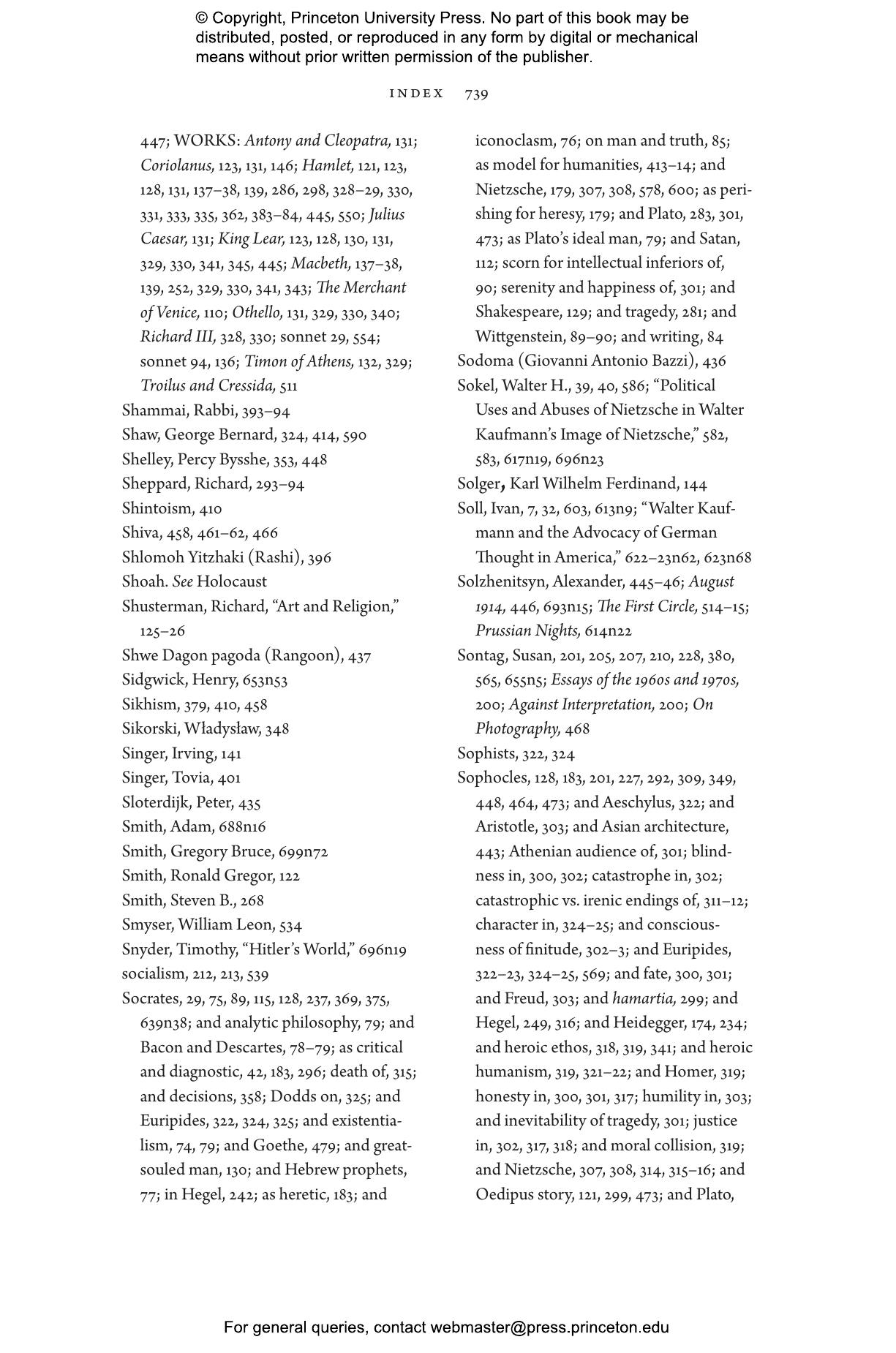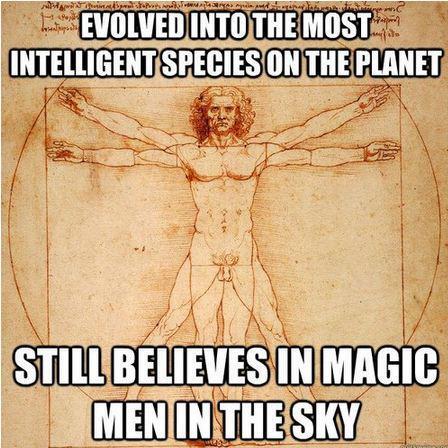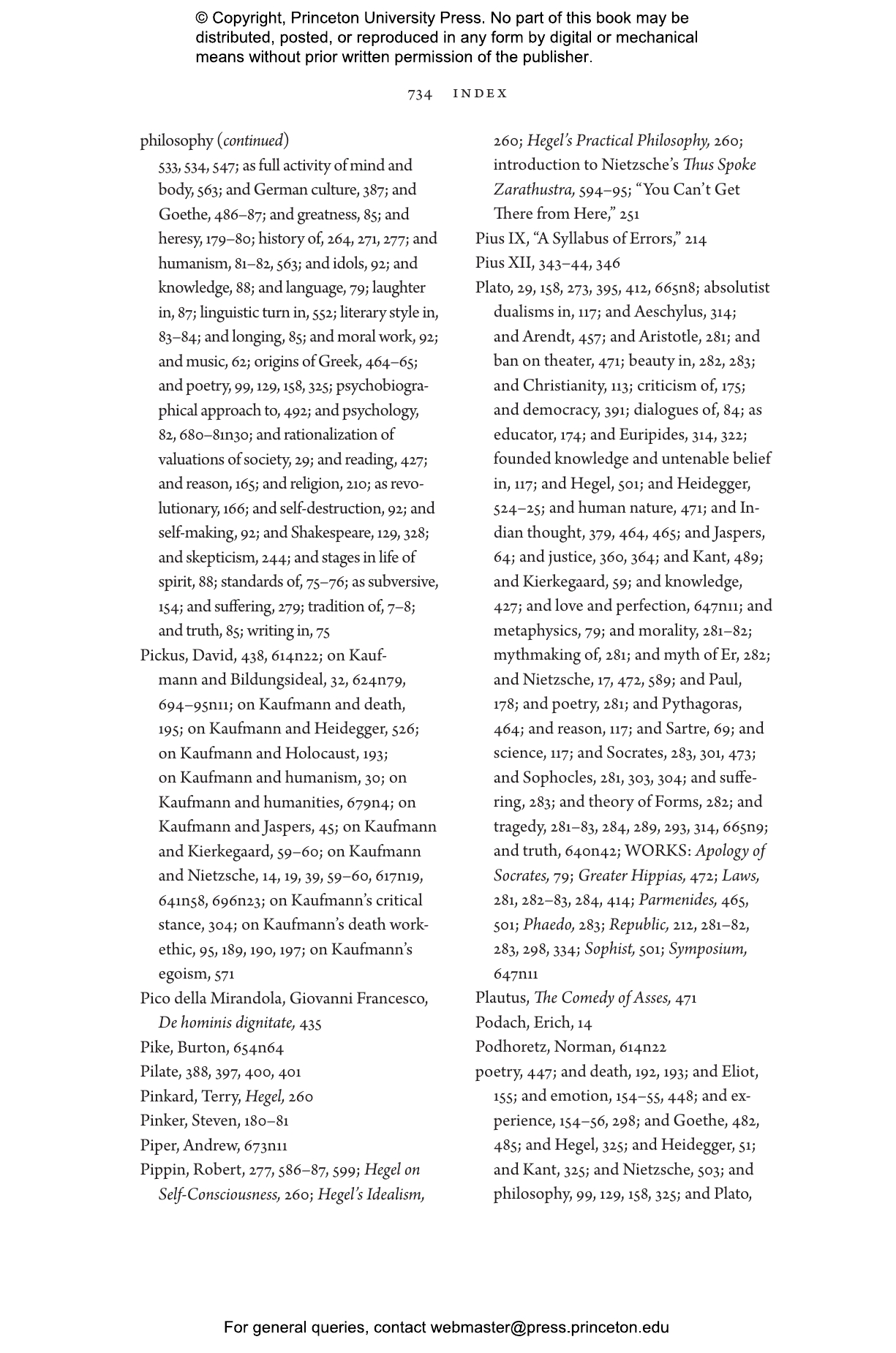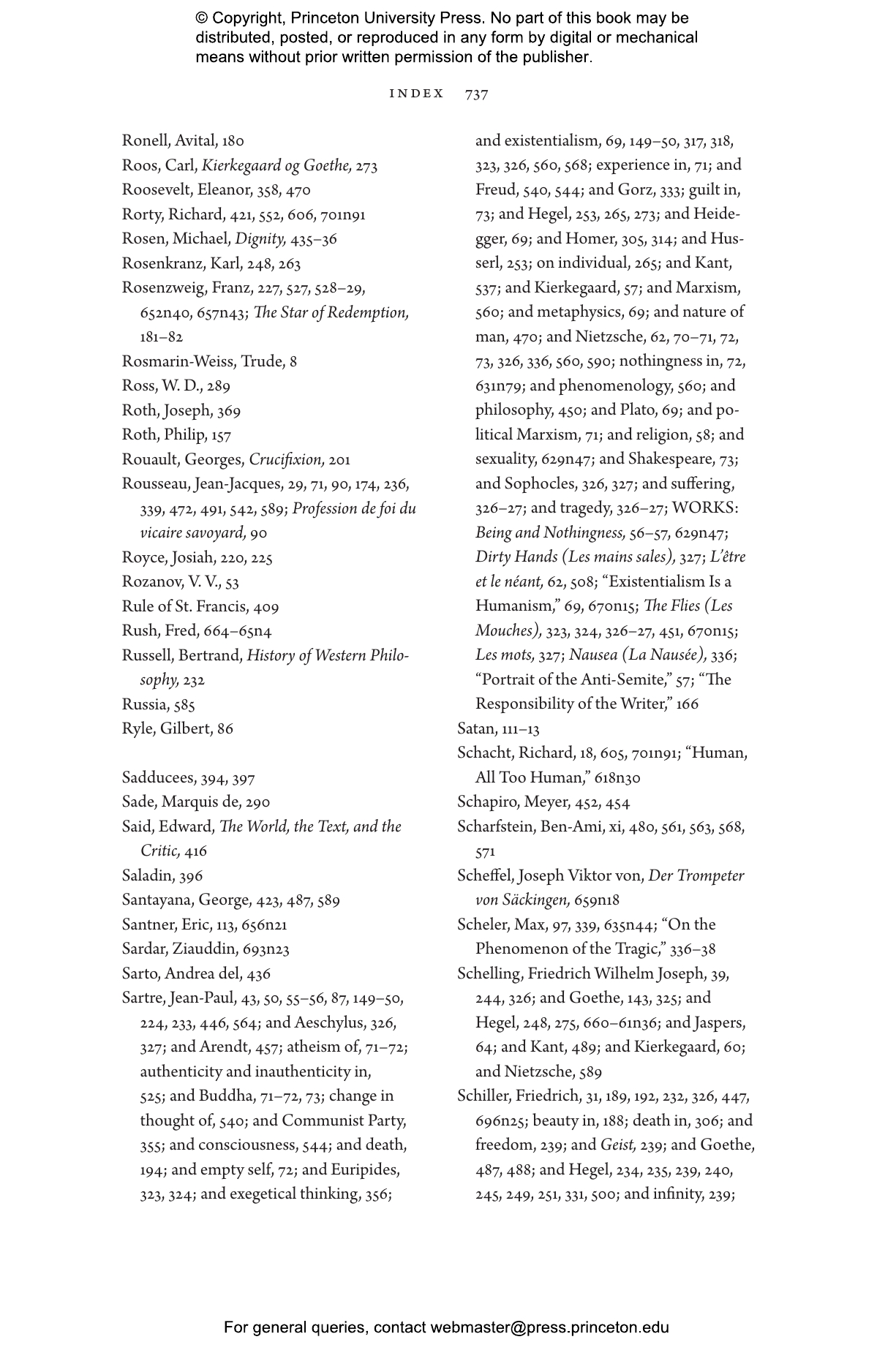


His best-known writings include Nietzsche: Philosopher, Psychologist, Anti-Christ (1950), Critique of Religion and Philosophy (1958), The Owl and the Nightingale: From Shakespeare to Existentialism (1959), The Faith of a Heretic (1961), Hegel: Reinterpretation, Texts and Commentary (1965), Tragedy and Philosophy (1968), Religions in Four Dimensions (1976), Man's Lot (3 vols., 1979), and Discovering the Mind (Trilogy, 1980). He made an attack on theology of all kinds and favored a naturalistic, humanistic approach.

Kaufmann was a vigorous opponent of arguments for religion. His main interests were philosophy of religion, social philosophy, and the history of ideas since the 19 th century. He remained at Princeton throughout his career. Kaufmann began teaching philosophy at Princeton in 1947 and became a full professor in 1962. From 1944 to 1946, he served in the United States Army Air Forces and Military Intelligence Service. in 1939 and studied at Williams College and Harvard University, where he received his B.A.

Born in Freiburg, Germany, Kaufmann was raised as a Lutheran but returned to Judaism. In a new foreword, Stanley Corngold vividly describes the intellectual and biographical milieu of Kaufmann’s provocative book.KAUFMANN, WALTER (1921–1980), U.S. The resulting exploration of the faiths of a nonbeliever in a secular age is as fresh and challenging as when it was first published. Beginning with an autobiographical prologue that traces his evolution from religious believer to "heretic," the book touches on theology, organized religion, morality, suffering, and death-all examined from the perspective of a "quest for honesty." Kaufmann also subjects philosophy's faith in truth, reason, and absolute morality to the same heretical treatment. Although he considered himself a heretic, he was not immune to the wellsprings and impulses from which religion originates, declaring it among the most vital and radical expressions of the human mind. A first-rate philosopher in his own right, Kaufmann here provides the fullest account of his views on religion. Originally published in 1959, The Faith of a Heretic is the most personal statement of the beliefs of Nietzsche biographer and translator Walter Kaufmann.


 0 kommentar(er)
0 kommentar(er)
